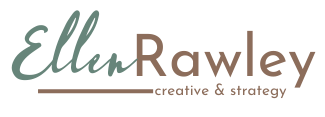Shifting business lingo to align with your values and desires.
I’ve been working with farms on value-added products for twelve years now and I’ve watched my own attitude towards sales and marketing ideas shift. Early on I was very grossed out by many topics in these areas of business. I was working on a farm and not in a corporate environment because I didn’t agree with much of what I saw businesses doing to the earth and how we relate to ourselves and each other. The result was that I was in business and resistant to being in business. After all, I wasn’t just giving product away, I was SELLING product. I was trying to support a livelihood that, in my case, requires money to function while also pushing away any terminology that focused on money.
If you are reading this and nodding your head because it so resonates with you, let me suggest a few edits you can make to how you approach your businesses from a lingo and perspective standpoint.
The word competitor can be super triggering. It’s aggressive for one and it seems to pit us all against each other. It also turns the volume up on comparison speak and, therefore, that imposter syndrome voice. However, it is true that your customer compares your product to others. Your customer has other options than yours. Knowing what those other options are and how you are like them and different from them can help you decide what information to communicate to your customer. It doesn’t mean you are trying to steal customers from other values-based brands. A customer can and might buy both of your products in the end, for different reasons or at different times. When you define these other brands you aren’t entering a boxing ring with them. So what are you doing? Something quite powerful. You are seeing your product within a larger context, a Product Landscape, similar to how you can tend a specific crops on your farm as a disconnected action with no regard to how fertilizers, sprays, etc. impact other crops, soil, or pests or you can view how you farm within a larger understanding of the interdependent ecology of your land.
Profit is another term that turns many values-based business owners off. Other words that come to mind when hearing the word Profit could be Miser, Greed, Greedy, Exploitation. The thing is, if you are the owner of your business, the profit of the business allows you to consistently pay yourself. And the even deeper thing is, if you can’t pay yourself, if your business has no savings for a bad year, if your business can not cover the costs it takes to run the business, it doesn’t have a long-term future (unless of course you or someone you know can feed cash into the business year over year). Profit is sustenance: it’s what is (quite literally) feeding you and your business. It is what helps it develop from a seed of an idea, to a start-up seedling, and then a strong plant with abundant harvests to share, like chicken manure to a nitrogen-loving tomato plant.
This came up in a call with a goat farmer who rightfully did not want to start viewing her goats as a commodity. We were preparing her for the Value Added Producer Grant and my continued use of the words “the cost of your goats” brought tears to her eyes. So as I put together a COGS analysis for her to look at I decided to edit my language. Instead of labeling the spreadsheet cell COST/HEAD, I switched the language to VALUE/HEAD. I love this reframe because it imbues an input with worth rather than stirring up a reflex to diminish our investments in the things that matter. The cost of labor in your product, for example, is the contribution you are making to sustain the livelihoods of real people, there is value in that investment. So many of us have heard people talk about cutting costs so incessantly that we forget that our costs are also our contribution.
I’m not at the end of this evolution. I still struggle with it, analyze it, discuss it, look at how others do it for inspiration. Can we use the tools of a capitalist structure that has run amok to support anything healthy or is that naive? I’m still not clear on the answer. But I do believe that alternatives need to exist. That solely tearing it all down without nurturing those that are building companies with respect to the earth and community is elitist because it leaves a lot of people to suffer in the dust and rubble.
What do you think of these shifts in language? Are there any that you have played around with in your business? I’d love to know.




